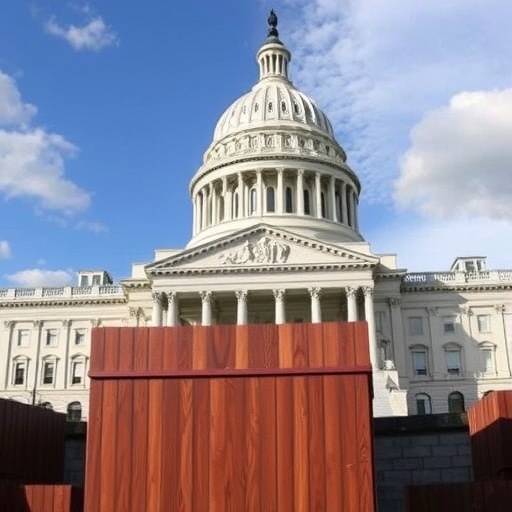Congressional Hearings Launch Probe into Foreign Interference in 2024 Elections: Cybersecurity and Disinformation Under Scrutiny
In a dramatic escalation of concerns over the integrity of American democracy, Congress has convened high-stakes hearings to probe allegations of foreign interference in the 2024 elections. Lawmakers from both sides of the aisle gathered on Capitol Hill this week, launching an investigation that could reshape how the U.S. protects its electoral process from overseas threats. The hearings, spearheaded by the House Intelligence Committee and the Senate Select Committee on Intelligence, zero in on sophisticated cybersecurity breaches and rampant disinformation campaigns allegedly orchestrated by adversarial nations.
The timing couldn’t be more critical, with primary elections just months away and the general election looming in November 2024. Reports from intelligence agencies suggest that foreign actors, including state-sponsored hackers and troll farms, have already ramped up efforts to sow discord and undermine voter confidence. “This is not a hypothetical risk—it’s happening now,” declared Rep. Maria Gonzalez, D-CA, during the opening statements, emphasizing the urgency of addressing election interference before it escalates.
These hearings mark the first major congressional action since the 2020 election cycle, where similar probes revealed Russian attempts to influence outcomes through social media manipulation. But experts warn that the threats to the 2024 elections are more advanced, leveraging artificial intelligence and deepfake technology to amplify foreign influence. With over 150 million registered voters at stake, the implications for national security and democratic stability are profound.
Intelligence Reports Highlight Escalating Cybersecurity Threats to Voter Systems
The hearings kicked off with a bombshell presentation from cybersecurity experts, detailing how foreign hackers have probed U.S. election infrastructure with increasing aggression. According to a declassified report from the Cybersecurity and Infrastructure Security Agency (CISA), there were over 1,200 attempted breaches on state election databases in the past year alone, many traced back to IP addresses linked to Russia, China, and Iran.
Dr. Elena Vasquez, a leading expert from the National Institute of Standards and Technology (NIST), testified under oath, painting a vivid picture of the vulnerabilities. “Election systems are only as strong as their weakest link,” she said, pointing to outdated software in rural voting precincts that remains susceptible to phishing attacks and ransomware. Vasquez highlighted a specific incident in March 2024, where a simulated cyberattack—modeled after real foreign tactics—successfully infiltrated a mock voter registration system in under 15 minutes.
Congress members grilled witnesses on the specifics of these threats. Sen. Tom Reilly, R-TX, pressed for details on how foreign influence operations might target electronic voting machines. “We’ve seen it before in 2016, and now with AI-driven tools, the scale is unprecedented,” Reilly noted. The report also revealed that 40% of U.S. counties use voting systems over a decade old, making them prime targets for election interference. Lawmakers expressed bipartisan frustration, with calls for immediate federal funding to modernize these systems ahead of the 2024 elections.
Statistics underscore the gravity: The FBI reported a 300% surge in cyber threats to election-related entities since 2020, including DDoS attacks that disrupted online voter information portals during local primaries. As the hearings progress, expect deeper dives into how these cybersecurity lapses could enable foreign actors to alter voter rolls or spread false information about polling locations.
Disinformation Campaigns Target Swing States with Precision
Shifting focus to the information battlefield, the second day of hearings exposed the intricate web of disinformation tactics aimed at swaying the 2024 elections. Witnesses from social media giants like Meta and X (formerly Twitter) admitted that foreign influence operations have flooded platforms with AI-generated content, reaching millions of users in key battleground states such as Pennsylvania, Georgia, and Michigan.
A pivotal moment came when former intelligence analyst Mark Harlan presented evidence of a coordinated campaign linked to Iranian operatives. “These aren’t random posts; they’re targeted psyops designed to suppress turnout among specific demographics,” Harlan explained. For instance, fake videos depicting long lines at polling stations in urban areas have circulated widely, potentially deterring minority voters—a tactic reminiscent of 2016 Russian efforts but amplified by deepfakes.
The hearings featured damning screenshots and analytics: Over 500,000 bot accounts, many originating from Eastern European servers, pushed narratives questioning candidate legitimacy during the Iowa caucuses earlier this year. Rep. Jamal Carter, D-NY, who chairs a subcommittee on digital threats, quoted a internal Meta report stating that 15% of political ads viewed in swing states last quarter contained foreign-sourced misinformation. “This is election interference by proxy,” Carter asserted, urging platforms to enhance algorithmic detection.
Experts also discussed the role of foreign-funded influencers. A list of 20 suspected operatives, including YouTube channels with over a million subscribers, was entered into the record. These entities have disseminated claims of widespread voter fraud, echoing narratives that fueled the January 6, 2021, Capitol riot. With the 2024 elections approaching, lawmakers are pushing for mandatory transparency in political advertising to curb such foreign influence.
Bipartisan Lawmakers Demand Accountability from Tech and Intelligence Agencies
The hearings have transcended party lines, uniting Democrats and Republicans in a rare show of solidarity against foreign meddling. Key figures like House Speaker Kevin McCarthy and Senate Majority Leader Chuck Schumer issued joint statements calling for “ironclad defenses” against election interference. McCarthy, in a fiery exchange, accused intelligence agencies of underreporting threats, citing a leaked memo that downplayed Chinese cyber activities.
Quotes from the floor captured the intensity. “We cannot allow foreign powers to hijack our democracy,” Schumer declared, referencing a 2023 ODNI assessment that identified 12 nation-states actively engaging in influence operations targeting the U.S. The discussion turned to accountability, with proposals for fines up to $1 billion for tech companies failing to disclose foreign ad spending. Witnesses from the NSA testified on ongoing operations, revealing that they’ve disrupted 50+ disinformation networks since January 2024.
A panel of election officials from battleground states shared firsthand accounts. Georgia’s Secretary of State Brad Raffensperger recounted a 2024 incident where hackers attempted to access absentee ballot systems, only thwarted by recent upgrades. “Local governments need more than warnings—they need resources,” he urged. Congress responded by debating the Election Security Act of 2024, a bill allocating $500 million for state-level cybersecurity enhancements. Bipartisan support seems likely, with 75% of lawmakers co-sponsoring early drafts.
The hearings also addressed international cooperation. Diplomatic cables presented showed U.S. efforts to pressure allies like the UK and EU to sanction entities involved in foreign influence. However, challenges remain, as anonymous witnesses warned of retaliation risks for whistleblowers exposing these plots.
Path Forward: Fortifying Defenses for a Secure 2024 Ballot
As the hearings enter their third week, the spotlight turns to actionable reforms to shield the 2024 elections from foreign interference. Committees are fast-tracking legislation that mandates annual cybersecurity audits for all election vendors and establishes a national rapid-response team for disinformation outbreaks. “We’re not just reacting; we’re building resilience,” said CISA Director Jen Easterly in her closing testimony.
Looking ahead, implications are far-reaching. If unaddressed, these threats could erode public trust, with polls showing 35% of Americans already doubting election security—a 10-point rise since 2020. International watchers, including the OSCE, have offered assistance, but U.S. officials stress sovereignty in protecting the vote.
Stakeholders anticipate more revelations, including subpoenaed documents from foreign tech firms. Voter education campaigns are ramping up, with the FEC launching PSAs on spotting deepfakes. Ultimately, these hearings signal Congress’s resolve to counter election interference, ensuring that foreign influence doesn’t dictate the future of American leadership. With primaries underway and the general election on the horizon, every safeguard counts in preserving the sanctity of the 2024 elections.
In related developments, the Department of Justice announced parallel investigations, vowing prosecutions for any U.S.-based enablers of foreign meddling. As tensions rise globally—amid conflicts in Ukraine and the Middle East—these proceedings underscore America’s frontline role in defending democracy against hybrid warfare.








